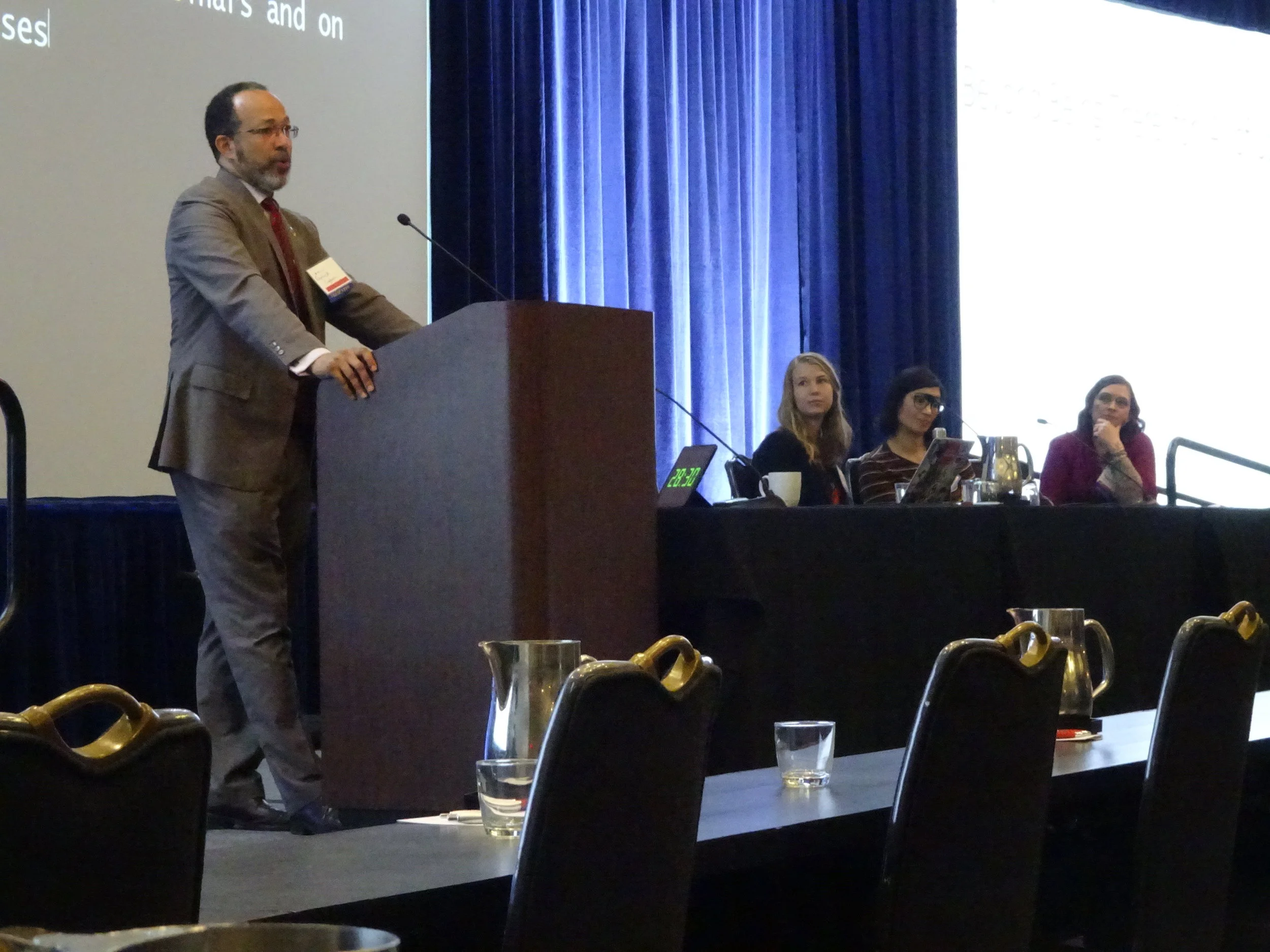Maryland Disability Summit Leading by Example
Maryland Disability Summit keynote speaker Dr. Jonathan Lazar with IDPP’ Executive Director Dr. Derrick Cogburn.
Institute of Disability and Public Policy (IDPP) was honored for the opportunity to present its research at one of DC’s most inclusive of conferences. It is not often that we step into a conference to find closed captions taking over the main presentation projector. Deftly organized down to the detail of providing ramps and notepads to everyone in the audience, we came away feeling inspired with all the work being done on disability justice and disability studies. As a result, we want to share some of the lessons learned through our experience besides the highlights of our own participation.
Coincidentally American University’ own Disability Symposium occurred five days prior to the UMD Disability Summit on April 10th. It is our hope to collaborate on our shared passion for inclusion and disability advocacy in the future.
Maryland’ standard voting ballot beside the ballot for persons with disabilities.
Headlined by the keynote speaker Jonathan Lazar who is a well-known scholar researching human-computer interaction, his talk highlighted how legislation in the US, American Disabilities Act (ADA) in specific has failed to represent the interests of persons with disabilities. Much of the enforcement of the guidelines laid out in the Act comes from disability advocacy groups, as opposed to organizations actively playing a role in making their institutions inclusive. The most glaring of disregards for the disabled community come in the voting process. Maryland Election Law hasn’t yet barred the creation of a segregated ballot. The ballot given for people with disabilities is reportedly half the size as the standard ballot. This makes the voting process transparent and consequently, their selection public - a violation of the rights of persons with disabilities. Dr. Lazar’ work highlights the disenfranchisement of persons with disabilities, besides enforcing the guidelines of the American Disabilities Act. Our visit hence confirmed our long-held belief that academia is at the forefront of tackling lack of accessibility in modern institutions.
“Attacks on inclusion are not uncommon today. In such circumstances, protecting existing legislative tools that enshrine inclusivity is portentous.”
In the long battle for inclusion and accessibility IDPP’ role is largely confined to the web-space. Having begun with University’s first online Masters’ degree, we have advocated for assistive technologies through our research on web-conferencing tools and telepresence robots. IDPP houses one such robot. Named A11y, IDPP had a chance to speak on its influence and impact on high-level international conferences like Global Platform (GP) 2017 and the Internet Governance Forum (IGF). IDPP’s Executive Director, Dr. Derrick Cogburn spoke of our contribution in this field by tracing the history of accessibility with online tools. With prolonged exposure and experience, we believe Zoom is an excellent platform that enables to bridge current gaps in online accessibility.
Besides web-conferencing tools, it should be added that a lot of online content today do not follow or are not aware of Web Content Accessibility Guidelines (WCAG). To see a radical shift towards accessibility, one area institutions can invest in is making web content more accessible. To be representative of an inclusive community, institutions must make their resources accessible.
Attacks on inclusion are not uncommon today. In such circumstances, protecting existing legislative tools that enshrine inclusion is portentous. This includes the American Disabilities Act. During our visit to the Maryland Disability Summit we learned of the numerous attacks on the guidelines enshrined in the Act - Most crucially, the Act itself is under threat. 103 members of Congress are known to have signed a letter to the Department of Justice, requesting a rollback of the American Disabilities Act as recent as June 2018. With conferences such as the Disability Summit at UMD and the Disability Symposium at the American University, we like to believe we are doing our part to keep these forces as bay.



